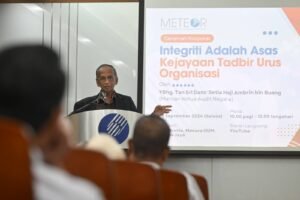A Battle Over Tax Refund Interest

Keysight Technologies Malaysia Sdn Bhd, a leading technology company, found itself embroiled in a legal battle not over taxes owed, but over interest on a tax refund. A substantial sum of RM286,285,621.01 was ordered to be refunded after a long legal struggle. However, the taxpayer contended that justice would only be served with interest compensation for the financial burden incurred.
The Claim for Interest

Keysight sought interest at a rate of 3.21% per annum from October 2017 to May 2024, along with post-judgment interest of 5% until full settlement. They argued that this was not an unreasonable demand, but a necessary reflection of the borrowing costs they had incurred in paying the tax and the loss of access to their funds.
The taxpayer cited Section 11 of the Civil Law Act 1956, claiming the court had the discretionary power to impose interest as compensation. Precedents like Woolwich Building Society v Inland Revenue Commissioners and Pelangi Sdn Bhd v Ketua Pengarah Hasil Dalam Negeri supported their case, emphasizing that taxes erroneously collected should be refunded with interest.
The DGIR’s Defense

The Director General of Inland Revenue (DGIR) strongly disagreed. They argued that tax law is unique, and unlike ordinary debtor-creditor relationships, the collection of taxes serves a public purpose. Allowing interest on refunds would disrupt the framework of tax legislation.
The DGIR referred to sections of the Income Tax Act 1967 (ITA), including Sections 91, 97, 99, 103, and 106, which prioritize quick tax collection even during appeals. They also cited Section 111D(4) of the ITA, which explicitly excludes compensation or interest on refunds, arguing that this case was not about unlawful demands but rather a contested appeal.
The Court’s Verdict

On 12 June 2024, the Court of Appeal delivered its judgment. While the court acknowledged that the discretion to award interest existed, it emphasized that it must be exercised judiciously and in appropriate circumstances.
The court sided with the DGIR, ruling that the tax paid was to be refunded without interest. The court highlighted that the statutory framework of the ITA did not foresee compensation for delayed refunds arising from appeals. Imposing interest would go against the spirit and intention of tax legislation.
For Keysight, it was a bittersweet outcome. While the principal refund was upheld, the absence of interest left their financial losses due to borrowing costs and delayed access to funds unaddressed.
Lessons Learned
This case serves as a critical reminder about the unique nature of tax law:
- Understand Tax Refund Rules: Even if taxes are erroneously collected, compensation for delays may not always be granted.
- Plan Financially: In tax disputes, consider the potential costs of delayed refunds and plan to manage liquidity effectively.
- Engage Expertise Early: Navigating tax law and the court’s discretion requires careful strategy and experienced legal guidance.
In the end, while justice in taxation often prevails, it rarely includes interest on refunds. Taxpayers must factor this into their financial planning.






